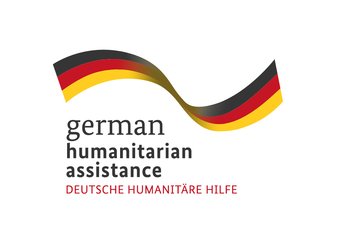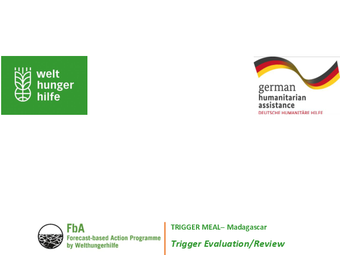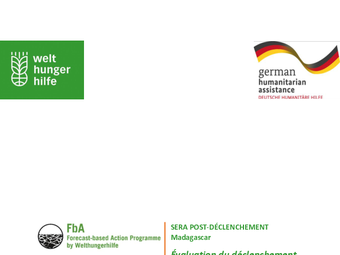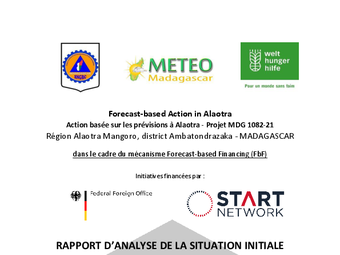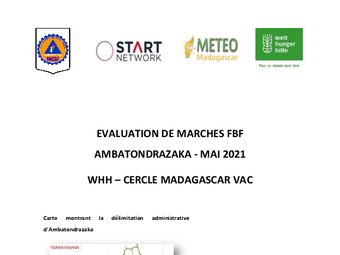Categories
Development of a forecast-based action mechanism addressing drought-induced food insecurity in Madagascar
Welthungerhilfe has developed and implements a forecast-based action mechanism addressing drought-induced food insecurity in several regions of Madagascar. The mechanism is based on regionally specific pre-financed Early Action Protocols (EAPs), triggered by a water requirement satisfaction index-based agricultural drought model.
The project’s goal is to develop a number of EAPs addressing food insecurity in several regions of Madagascar. The developed, localized EAPs are based on impact-based forecasting methods and sufficiently support coping strategies against drought. The EAPs will be pre-financed and connected to a risk-based scientific trigger model.
Key facts
Start/end date
March 2020 - December 2022
Hazards covered
Drought
Regions covered
Boeny, Atsimo-Atsinanana, Alaotra-Mangoro (regional coverage to be extended)
Early action sectors
Food security
Anticipatory Action Protocols/Plans in place
Six EAPs in three regions Boeny (Mahajanga II, Marovoay), Atsimo-Atsinanana (Farafangana, Vangaindrano), Alaotra-Mangoro (Amparafaravola, Ambatondrazaka); EAP coverage to be extended
Activations
One, in Ambatondrazaka District, early 2021
Key actors/implementing partners
Welthungerhilfe; GFFO (donor); Start Network; BNGRC; DGM
Photo by Haddad Toni/ Welthungerhilfe
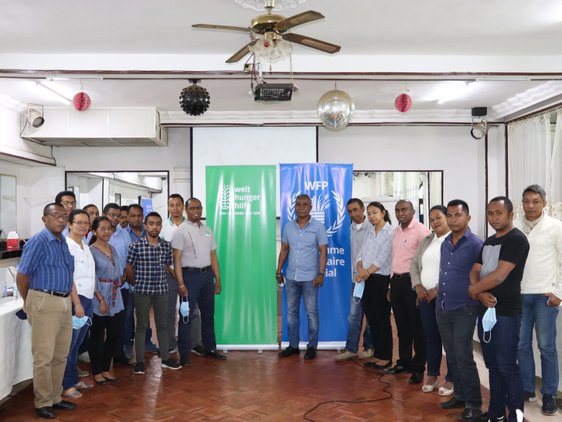
Work group at the workshop for validation of FBF/A common framework. © Welthungerhilfe
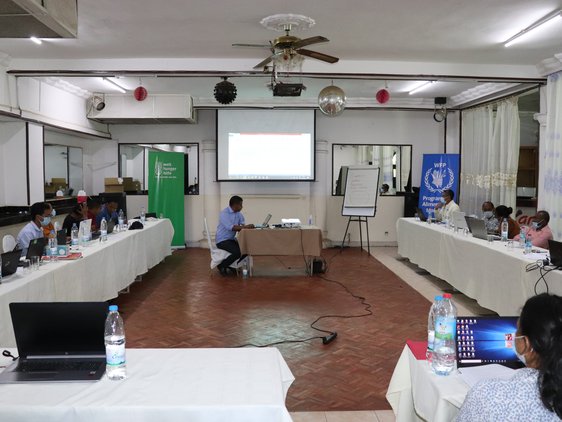
Work group at the workshop for validation of FbF/A common framework. © Welthungerhilfe
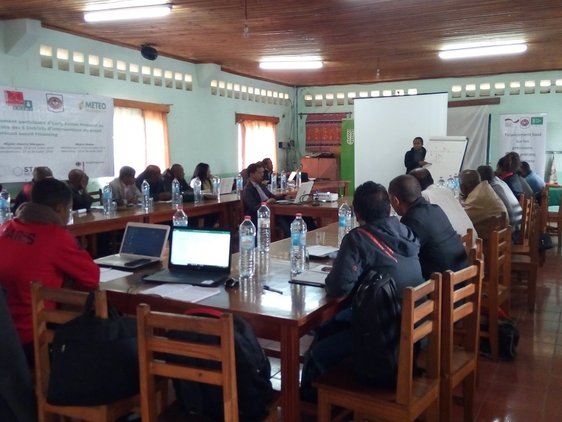
EAP validation and elaboration at Farafangana. © Welthungerhilfe
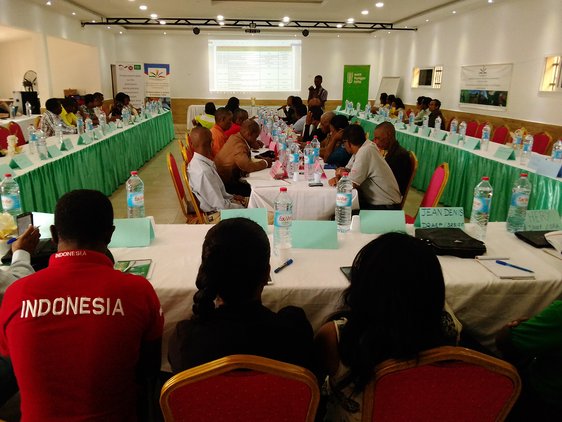
EAP validation and elaboration at Ambatondrazaka. © Welthungerhilfe
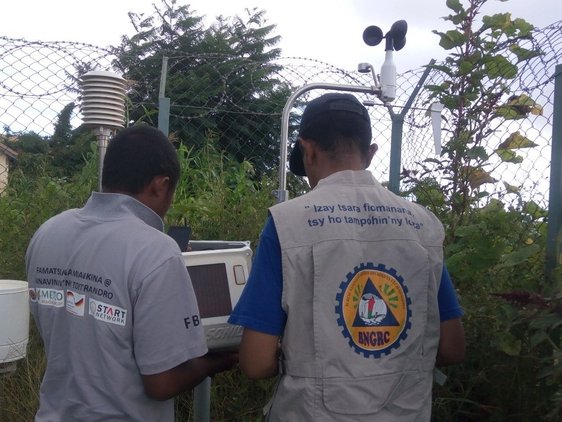
Welthungerhilfe staff on a joint visit to one of the two agro-meteorological observation stations, with a governmental stakeholder from the National Bureau of Risk and Disaster Management. © Welthungerhilfe
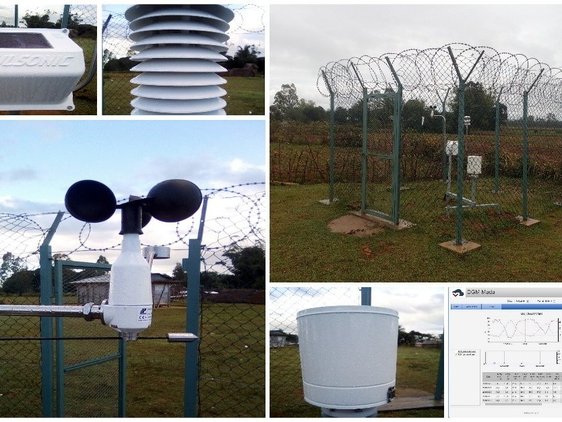
The two agro-meteorological observation stations were installed in Alaotra and Atsimo Atsinanana in May 2019, in order to strengthen the National Meteorological Service's network of monitoring stations for drought monitoring. © Welthungerhilfe

Work group at the workshop for validation of FBF/A common framework. © Welthungerhilfe
Work group at the workshop for validation of FbF/A common framework. © Welthungerhilfe
EAP validation and elaboration at Farafangana. © Welthungerhilfe
EAP validation and elaboration at Ambatondrazaka. © Welthungerhilfe
Welthungerhilfe staff on a joint visit to one of the two agro-meteorological observation stations, with a governmental stakeholder from the National Bureau of Risk and Disaster Management. © Welthungerhilfe
The two agro-meteorological observation stations were installed in Alaotra and Atsimo Atsinanana in May 2019, in order to strengthen the National Meteorological Service's network of monitoring stations for drought monitoring. © Welthungerhilfe
Anticipation in practice: project description
FbA programme at Welthungerhilfe
Since 2017, Welthungerhilfe has developed and implemented a forecast-based action mechanism in Madagascar. In cooperation with the Start Network and several NGOs, trigger-based EAPs have been developed. The objective of the FbA programme under Welthungerhilfe is to scale up the forecast-based action approach for drought-induced food security in Kenya and Zimbabwe. More details on these projects can be found under the respective Anticipation Hub project pages.
Reduce the risk of drought-induced food insecurity
The early action mechanism reduces the impact of a predicted drought on food security for the most vulnerable communities. Based on in-depth analyses, several local EAPs have been, and will be, developed and connected to a trigger-based financing mechanism. The drought model that triggers the EAPs is based on the water requirement satisfaction index (WRSI), an index for crop monitoring and drought-related water stress, and on local rainfall data, and is informed by comprehensive risk and vulnerability data. On the basis of historical analyses, the model addresses drought events with an average return period of 10 years.
In cooperation with the Start Network and other NGOs, several localized EAPs are being developed using impact-based forecasting models and addressing specific coping strategies, in order to minimize the drought-induced damages and losses of affected households. The EAPs include the roles and responsibilities of all involved stakeholders, as well as particular early actions which are specifically tailored to the regional context, timing and severity of drought. The EAPs are designed to be rolled out immediately after the drought forecasting model has been triggered.
The project uses the results of conducted household economy analysis (HEA) vulnerability analyses to identify further suitable areas to be covered by EAPs. As soon as the drought model is triggered, a range of early actions, such as early cash, in-kind assistance and awareness-raising activities, will be activated, depending on the timing of the trigger and the threshold reached.
Forecast-based action in an NGO environment
Our vision is to strengthen forecast-based action and anticipatory humanitarian initiatives among NGOs. Therefore, and to ensure long-term sustainability, the ownership of local EAPs should be shared with other stakeholders. With this objective in mind, Welthungerhilfe has partnered with the Start Network, which consists of more than 50 NGO members. Start Network member organizations in Madagascar, and in the other two programme countries (Kenya and Zimbabwe) can become so-called 'EAP custodians' and, as such, will collaborate in the development and implementation of EAPs. Such a formalized cooperation ensures local institutionalization, communal involvement, as well as high accountability towards local stakeholders and beneficiaries. The guidance and facilitation of this process will be done by Welthungerhilfe.
The forecast-based action mechanism will be developed, specifically adapted and set up within an international and national NGO environment. To ensure effective implementation, the system is being developed in cooperation with the Start Network, Start Network member organizations, universities, local partners, national government institutions, local authorities and target group communities.
The Start Network will play a pivotal role as technical advisor, but also by providing the financing mechanism supporting the forecast-based action system. It will provide continuous technical guidance on the model development, and quality assurance on the EAPs developed by Welthungerhilfe and other Start Network member organizations in-country. When triggers are met, the Start Network will fund the EAP implementation. Provision of the necessary funding to support these EAPs is one of the reasons behind the Start Network’s quality assurance role in their development. This funding support is part of a wider NGO-specific financing facility (in preparation), which will enable donor money to be deployed at scale in timely, predictable and efficient ways to frontline NGOs such as Welthungerhilfe.
Lessons learnt
Scheduling longer lead-in time (especially in new countries of implementation) to ensure proper introduction to concepts, capacity building and training, as well as the ‘buy-in’ of various stakeholders
Scheduling more time for coordination, scoping and understanding the specific local contextahead of programme initiation
Fostering of constructive exchange and coordination between Welthungerhilfe internally but also with other stakeholders (such as Start Network and members, national government institutions and local authorities, but also between different initiatives, such as the Welthungerhilfe FbA Programme and Start Network Pakistan DRF initiative)
Scheduling sufficient time in order to build a robust scientific model (or even consider to outsource)
EAP activation in early 2021: early cash distribution to address food insecurity in north-east Madagascar
Welthungerhilfe’s early action protocol (EAP) for Ambatondrazaka District in Alaotra-Mangoro was triggered in early 2021. This EAP is specifically tailored to the region’s specific needs, as the mechanisms used to cope with food insecurity vary regionally. The EAP includes various scenarios which are triggered according to the timing of the trigger and the threshold reached. Early actions include early cash, in-kind assistance and awareness-raising activities.
In January and February 2021, Welthungerhilfe’s scientific drought-monitoring model indicated drought conditions in the critical growing phase for upland rice, the reference crop in Ambatondrazaka. The trigger was met at a relatively low threshold, resulting in the Start Network releasing pre-positioned funds from the German Federal Foreign Office. These were used to implement early cash distributions, targeting the most vulnerable population in the pilot region to reduce the risks to their food security, prevent negative coping strategies and minimize loss and damage among drought-affected households. The early cash was distributed as unconditional cash grants to help vulnerable households meet their specific needs before the peak of the lean season.
More information about this activation can be found in these two blog posts: Forecast-based action intervention: early cash distribution to address food insecurity in the north-east of Madagascar and Distributing early cash to address food insecurity in Madagascar: success stories from Welthungerhilfe’s activation in 2021.
Welthungerhilfe’s early cash distribution in north-eastern Madagascar
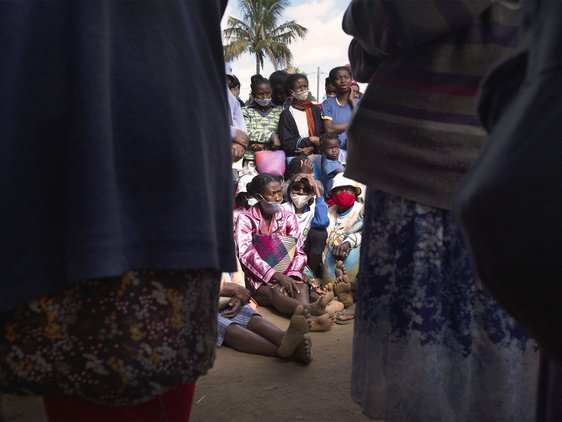
Early cash distributions to address food insecurity in north-east Madagascar. © Haddad / Welthungerhilfe
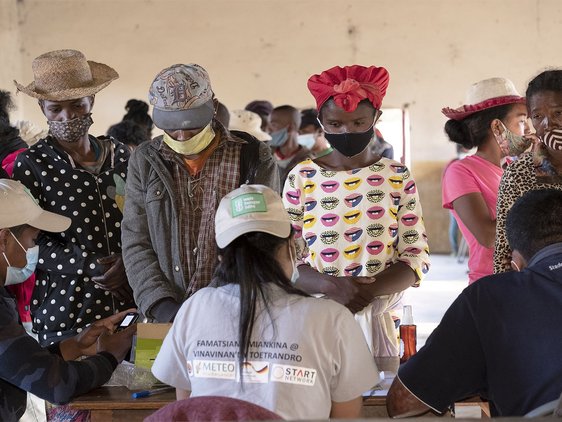
Early cash distributions to address food insecurity in north-east Madagascar. © Haddad / Welthungerhilfe
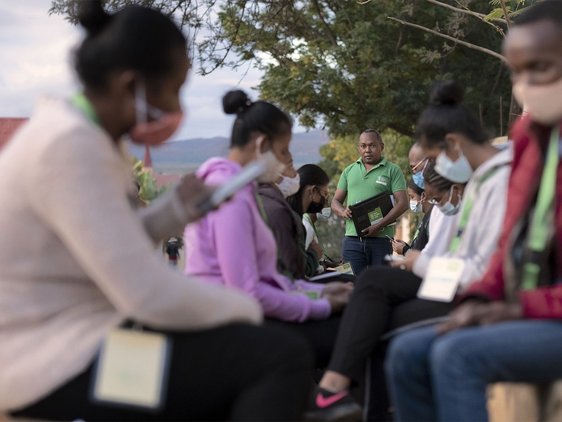
Early cash distributions to address food insecurity in north-east Madagascar. © Haddad / Welthungerhilfe
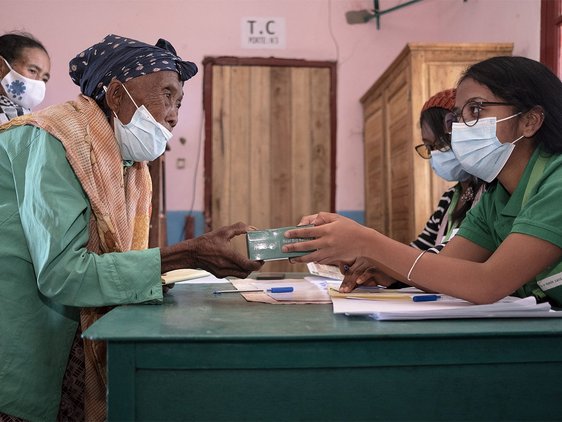
Early cash distributions to address food insecurity in north-east Madagascar. © Haddad / Welthungerhilfe
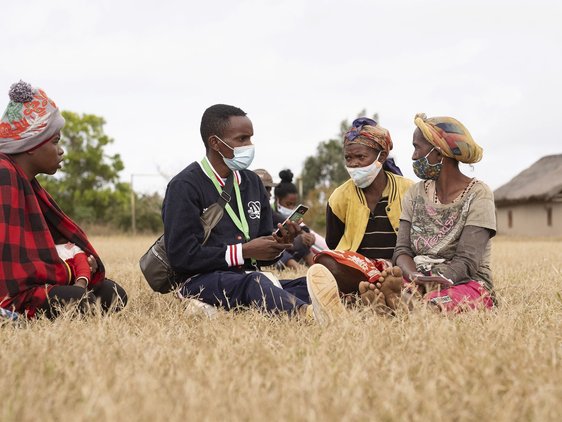
Early cash distributions to address food insecurity in north-east Madagascar. © Haddad / Welthungerhilfe

Early cash distributions to address food insecurity in north-east Madagascar. © Haddad / Welthungerhilfe
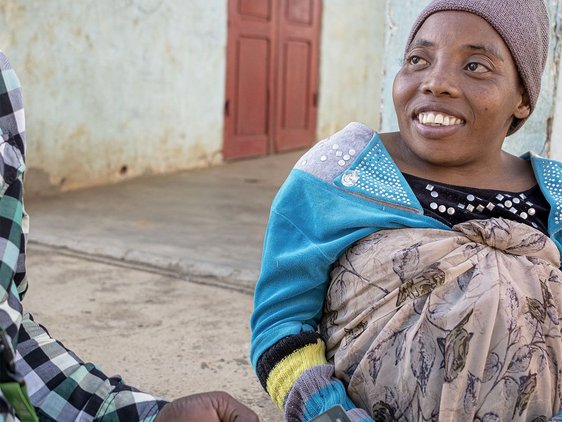
Early cash distributions to address food insecurity in north-east Madagascar. © Haddad / Welthungerhilfe

Early cash distributions to address food insecurity in north-east Madagascar. © Haddad / Welthungerhilfe
Early cash distributions to address food insecurity in north-east Madagascar. © Haddad / Welthungerhilfe
Early cash distributions to address food insecurity in north-east Madagascar. © Haddad / Welthungerhilfe
Early cash distributions to address food insecurity in north-east Madagascar. © Haddad / Welthungerhilfe
Early cash distributions to address food insecurity in north-east Madagascar. © Haddad / Welthungerhilfe
Early cash distributions to address food insecurity in north-east Madagascar. © Haddad / Welthungerhilfe
Early cash distributions to address food insecurity in north-east Madagascar. © Haddad / Welthungerhilfe
In the drought-prone regions of Madagascar, people are constantly in need of humanitarian aid. Aid for food and food crises is now provided on the basis of indicators that allow us to react to a growing crisis situation. This approach is an important added value in the new drought-response strategy under the 2020-2023 contingency plan. In fact, it enables early multisectoral planning, which is a first for Madagascar in this way.
Welthungerhilfe’s FbA project in Madagascar offers the opportunity to take advantage of synergies with other FbA stakeholders and to develop a cross-pillar (IFRC, UN, NGO) mechanism coordinated between organisations. This constellation opens up the potential for EAPs and early interventions to be coordinated.
Welthungerhilfe’s FbA mechanism in Madagascar covers agricultural drought by using advanced satellite-based rainfall data sets, crop and planting calendar data together with soil data sets to generate the Water Requirement Satisfaction Index (WRSI), an index for crop monitoring and drought related water stress. The WRSI will then be combined with the exposure (yield reduction function) and the social vulnerability to estimate the impact of the agricultural drought.
Welthungerhilfe is taking the next key step to tackle drought-induced food insecurity in Madagascar by extending its FbA approach, also in the very drought-prone south of the country. We will establish early action protocols for the at-risk population, similar to the ones already active further up in the north, while closely exchanging with other actors involved, such as WFP and the government. Our first trigger implementation in Ambatondrazaka has proven that our concept works.
Facts and figures
The numbers at a glance
Further information
Contact
Kenneth Bowen
Country director, Welthungerhilfe Country Office Madagascar
Kenneth.Bowen@welthungerhilfe.de
Marlene Müller
Head of programmes, Welthungerhilfe Country Office Madagascar
Marlene.Mueller@welthungerhilfe.de
Julio Rainimananjanahary
Emergency coordinator and EAP expert, Welthungerhilfe Country Office Madagascar
Julio.Rainimananjanahary@welthungerhilfe.de
Miharintsoa Radanielina
Project coordinator - FbA programme, Welthungerhilfe Country Office Madagascar
Miharintsoa.Radanielina@welthungerhilfe.de
Mamy Fiononana Rasolofo
Scientific coordinator - FbA programme, Welthungerhilfe Country Office Madagascar
Dominik Semet
Programme Coordinator for Forecast-based Action Programme
Implementing organization
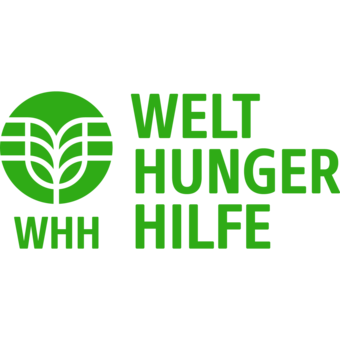
Welthungerhilfe
Learn morePartner
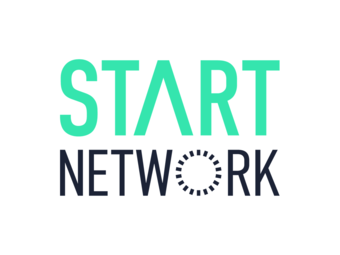
START Network
Learn moreSupported by:
